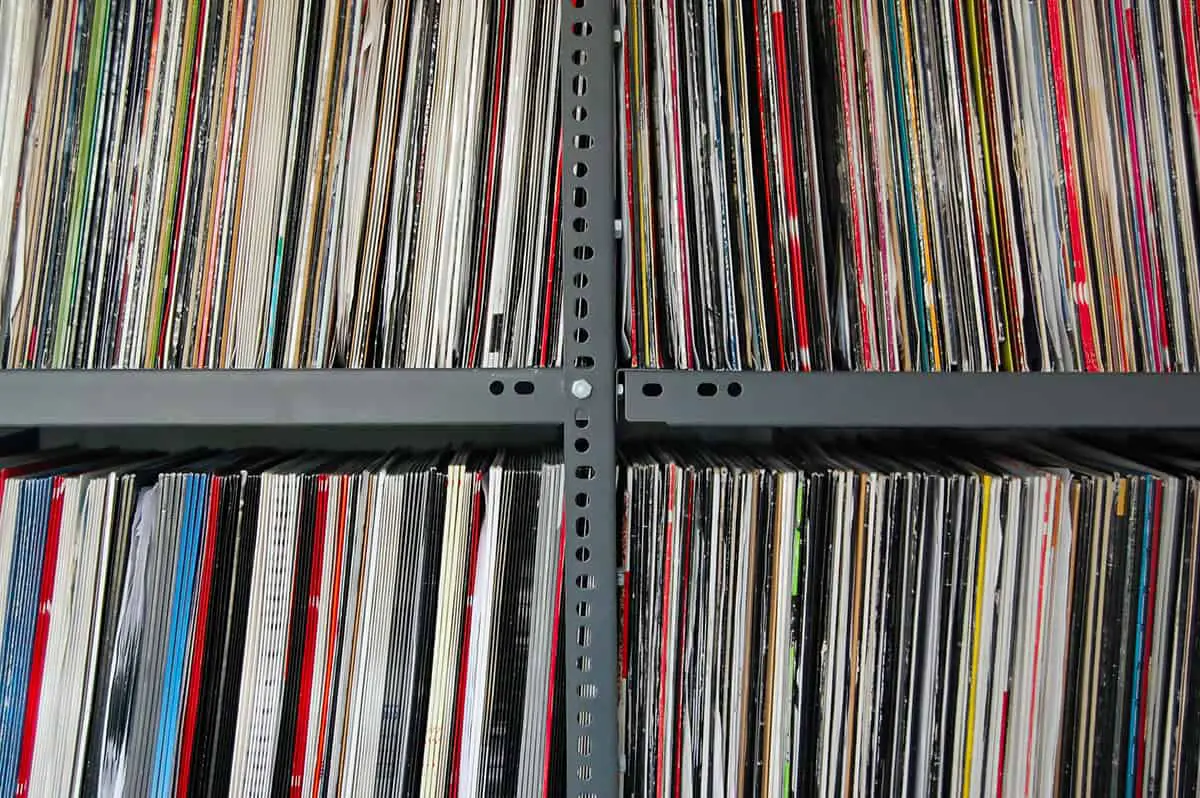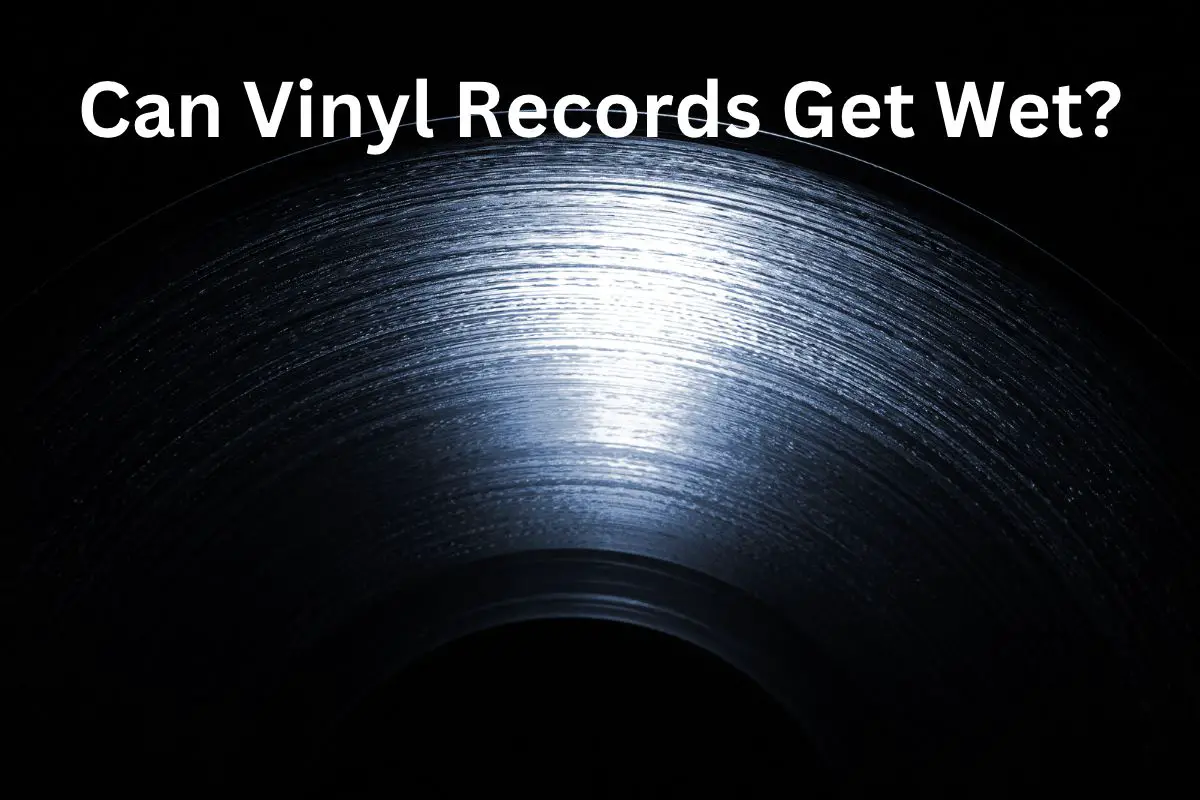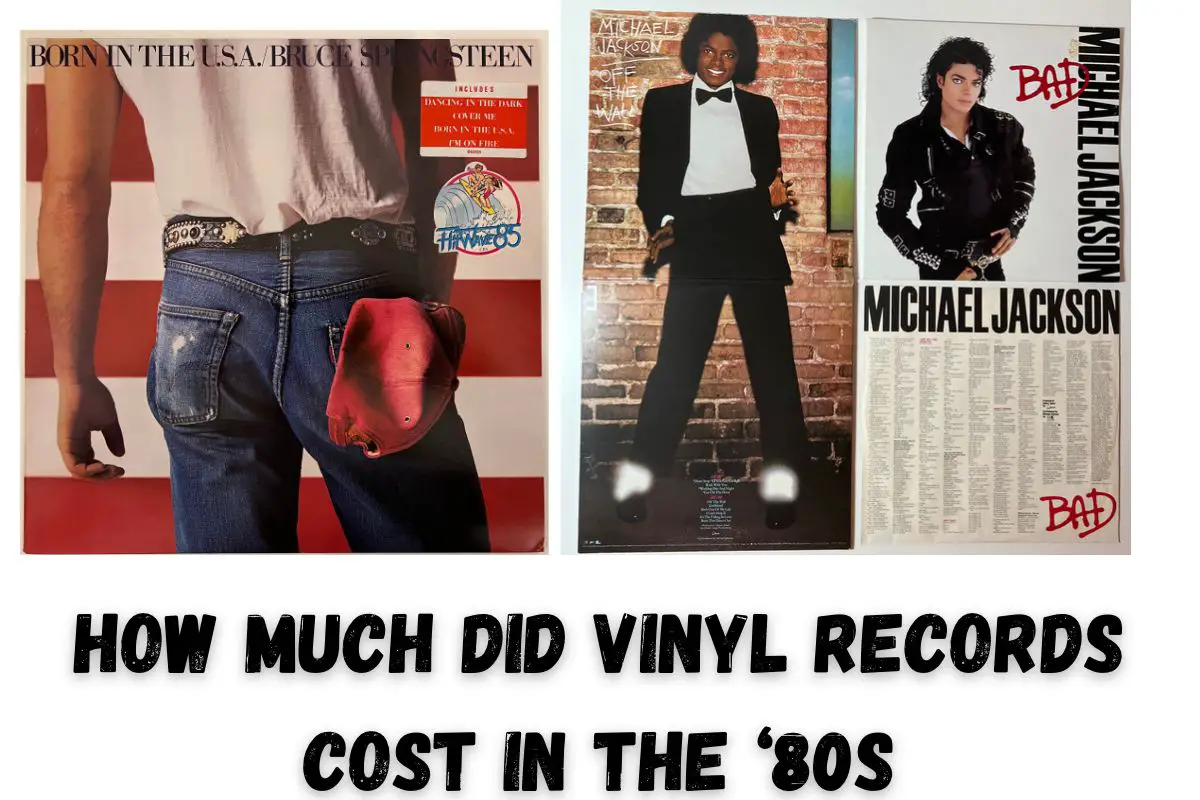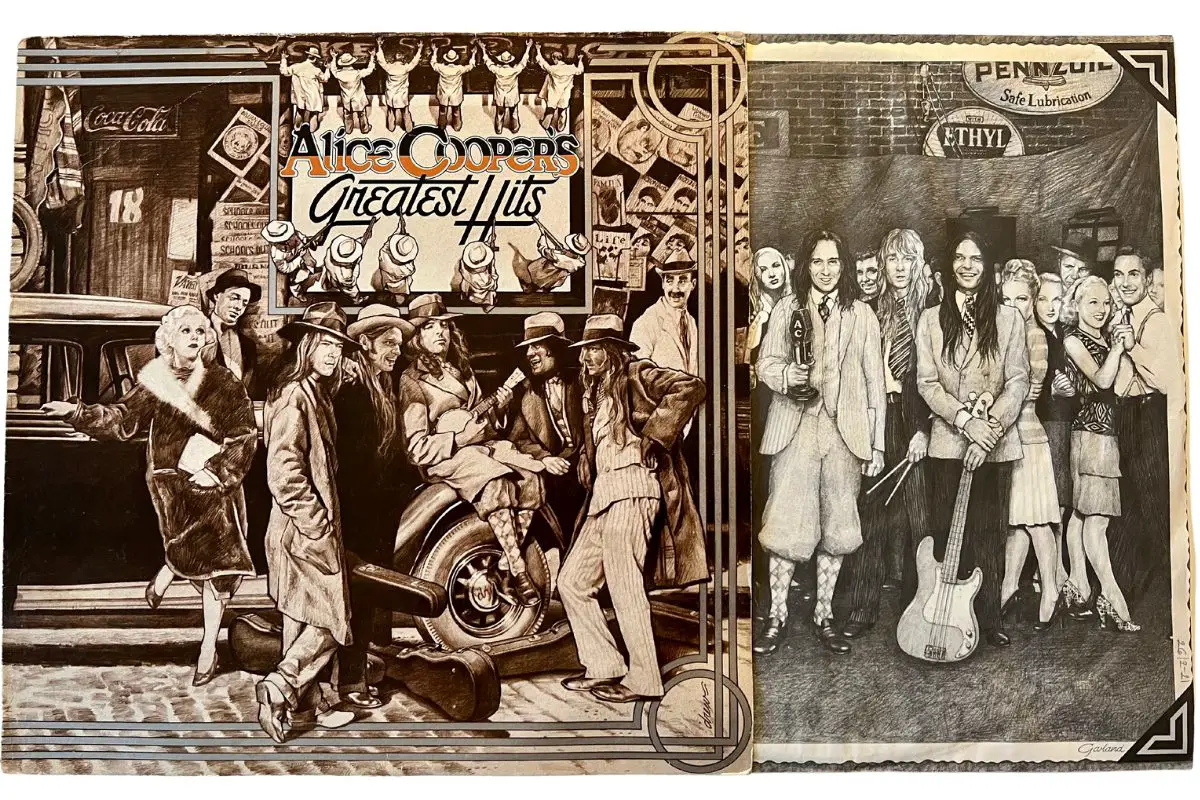This post contains affiliate links.
If you’re new to the vinyl record hobby, you may wonder what the best way to store your vinyl records is. If you want to keep your records in as good of condition as possible for as long as possible, you’ll want to ensure they get stored in the correct environment. Now, can vinyl records be stored in cold?
Vinyl records can be stored in the cold. However, there are some things you’ll want to look out for. The vinyl records will become brittle and more prone to breakage at low temperatures. As they thaw, moisture will condensate, which can cause problems if you’re not careful.
Keep reading as I discuss the changes your records go through when exposed to heat and cold and the proper protocol for storing vinyl records.
Table of Contents
Can the Cold Damage Vinyl Records?
The cold can damage vinyl records if the temperatures are below freezing. Temperatures below freezing, 32°F (0°C), can cause your records to become more brittle and attract moisture, both of which can damage your vinyl records.
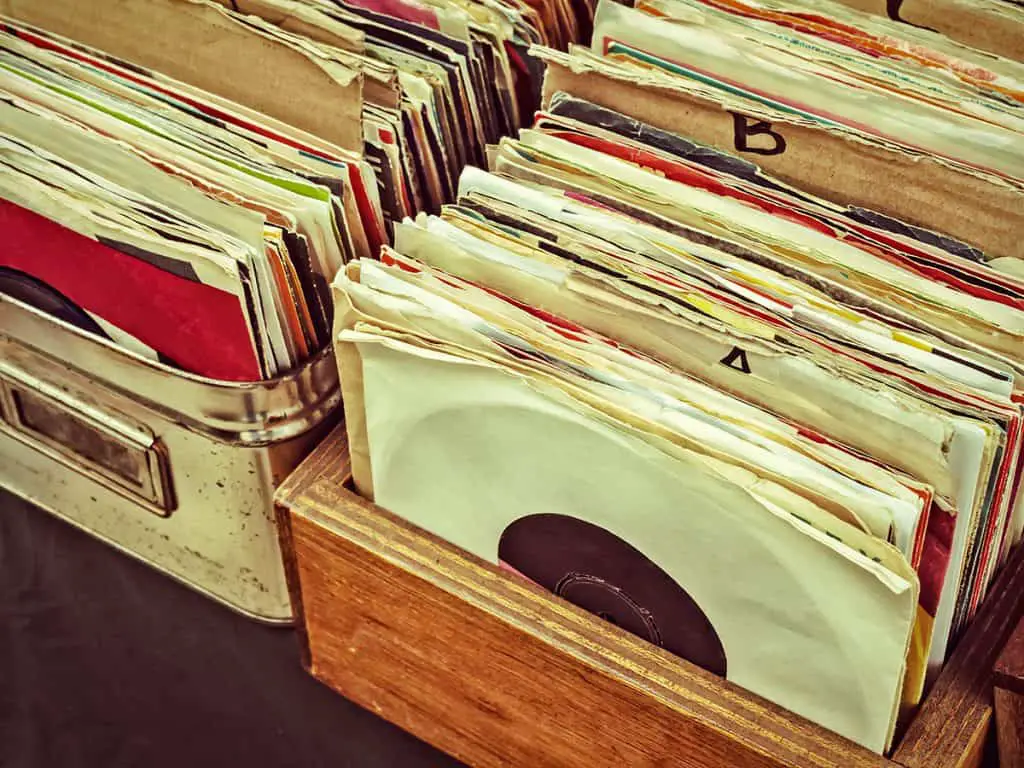
While the brittleness itself doesn’t have a negative effect on the record, it makes them far easier to break. Suppose you’re planning on transporting your records in this weather. In that case, you’ll need to be especially careful to ensure they’re properly packed so that they don’t shatter or crack during the shipping process.
Another issue you’ll run into with the cold is when temperatures start to rise. As the temperatures rise, your record will begin to thaw. The thawing process attracts moisture, which can damage your record and its case.
It’s best to thaw your records in a controlled environment where you can gradually make the temperature change and wipe away any moisture as it accumulates.
Can the Heat Damage Vinyl Records?
The heat can damage vinyl records. Heat effects on vinyl records are far more severe than cold effects. Heat and direct sunlight can easily warp your vinyl records and distort the sound to the point where it’s no longer playable.
Generally speaking, most temperatures that are comfortable for you are comfortable for your vinyl record, so if you’re not sweating or shivering, you shouldn’t have to worry too much. However, once the temperature reaches 100°F (37.78°C), you’ll start to see damage from the heat in the form of warping and distortion.
Note that the air around your record doesn’t need to reach 100°F (37.78°C) before damage starts to occur. Only your record does. Most records are black, meaning they tend to absorb heat more quickly than other objects. If you place your records directly near a heater or in the sunlight, they’ll absorb that heat, and their temperature will rise very quickly.
Once your vinyl reaches the melting point, varying from 212 to 500°F (100 to 260°C) depending on the manufacturer, the damage will be irreparable. That’s why it’s so important to keep your vinyl records out of the sun and extremes in temperature, especially heat.
How To Properly Store Vinyl Records
You should keep your vinyl records in a cool area. 50 to 70°F (10 to 21.11°C) is generally safe, without excess humidity, and away from any damaging UV rays. You’ll also want to ensure you’re not putting excess weight and pressure on your vinyl records.
Don’t Keep Your Records in Very Low or High Temperatures
One of the most important aspects of storing your records to think about is the temperature they’re being stored at. As stated earlier in this article, both very low and very high temperatures can harm your vinyl records.
At temperatures below freezing, vinyl records become brittle, making them more likely to break, especially if they’re under any additional pressure from other records. At temperatures over 100°F (37.78°C), you’ll start to run into issues with your vinyl warping.
Minor cases of warping can be repaired by reheating and shaping the record, but if it becomes too severe, your only option will be to toss the record and start over. Or you can keep your vinyl record as decoration.
Avoid Keeping Records in Rooms With High Humidity
Another thing to think about with your vinyl storage is the average humidity in the room. Over time, high humidity levels will cause significant damage to your vinyl records.
It’s recommended that you keep your vinyl storage room at 30 to 40% humidity to avoid causing any damage.
Remember that humidity is another concern that comes along with storing your records in cold temperatures. As the temperature fluctuates, the humidity will be attracted to the record. It will damage both the actual record and its sleeve. So, if your records freeze at any point, monitor them as they thaw to remove excess moisture before it causes damage.
Avoid UV Rays
Another environmental factor that’s damaging to vinyl records is UV rays. Over time, UV rays will start to break down your vinyl and its casing.
Fortunately, this is a relatively easy problem to avoid. All you need to do is ensure that your records are stored away from any windows so that they’re not receiving any direct sunlight. Even if UV rays weren’t damaging to records, it would still be a good idea to keep them far away from the windows to avoid any temperature fluctuations that windows can bring.
If you have any animals that require heat lamps or use grow lights on your plants, those also release UV rays, so make sure you place your vinyl collection far away from these items.
Don’t Stack the Records
Although it’s common to see vinyl collections stacked up against each other, and it looks amazing, it’s not the best way to store a vinyl record.
Vinyl records typically weigh a little over 5 ounces (141.75 g) — that’s not too much. But if you have a stack or shelf of 30 vinyl and they’re all leaning against each other, they become too heavy. With that much weight, your records are likely to warp over time, ruining them.
If you’re planning on storing your vinyl for an extended period, then you’ll want to make sure you have no more than 15 stored together. It will reduce the amount of weight that the pieces of vinyl have to carry and, if all the other conditions are right, should prevent them from warping.
Where Should You Store Vinyl Records?
You should store vinyl records in a temperature-controlled room in your home that has low humidity and no big windows that could introduce UV rays. For most people, a furnished basement will be the place that meets most of these requirements.
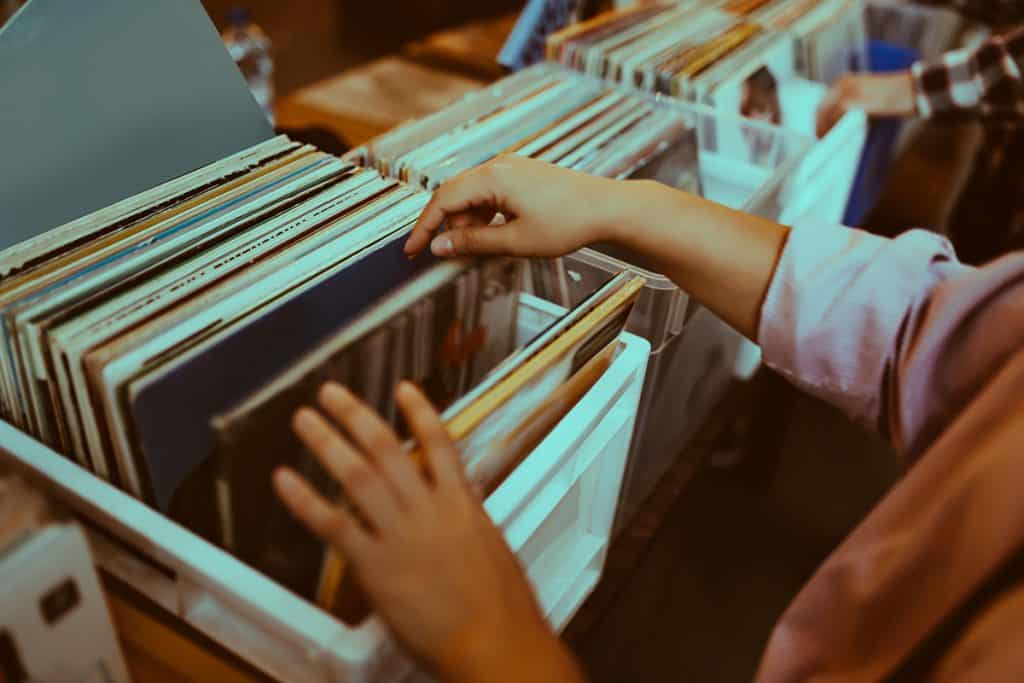
To keep your records in tip-top shape, you’ll want to store them in an area with as few temperature fluctuations as possible and away from any humidity producers such as bathrooms.
If you have a furnished basement, this will likely be the best place to store your records as long as you can keep the humidity under control. Basements are less sensitive to rapid temperature fluctuations, tend to stay cool, and don’t have an issue with UV rays.
Conclusion
After all that information, it may seem like it’s impossible to store your vinyl records without damaging them, but that’s not the case. As long as you follow as many of the guidelines as possible, you shouldn’t have any significant damage occur.
Your records should be stored in a cool environment, but not too cold as they can become brittle. As a general rule, if you’re comfortable, your records are, too.
Related articles:
- How to Store Vinyl Records: 8 Things You Need to Know
- Can Records Be Stored Horizontally?
- What Temperature Can Vinyl Records Withstand? We Have The Answer.
- A Guide To Storing Your Vinyl Records
VacationVinyl.com is a participant in the Amazon Services LLC Associates Program, an affiliate advertising program designed to provide a means for sites to earn advertising fees by advertising and linking to Amazon.com. We also participate in other affiliate programs which compensate us for referring traffic.

